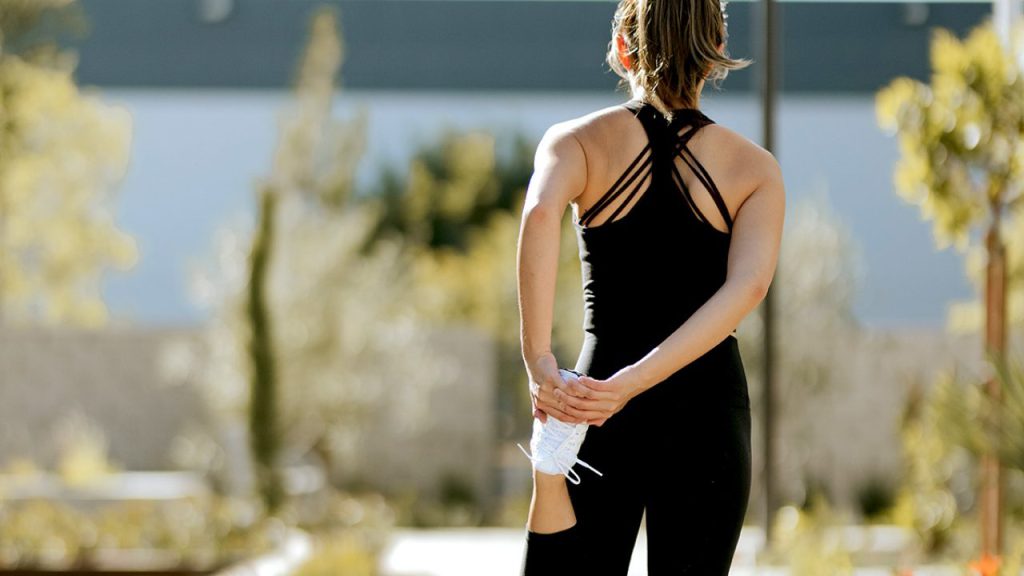Fitness
Fast muscle recovery
Living an overall healthy lifestyle is the most important step you can take to maximize your recovery from working out. No recovery method can make up for poor nutrition and a lack of rest.
Despite what you may read on some fitness blogs, there’s no better way to help your muscles recover than by eating healthy foods and getting a good night’s sleep.
Many people believe they need expensive supplements to achieve results from their workouts. Although some supplements have benefits, you’re not going to maximize your performance unless you’re already taking care of the basics.
In this article, we give you 15 proven tips to maximize your muscle recovery and help you build a more consistent fitness program.
How our tips are categorized
We’ve divided our tips into five categories:
- foods
- drinks
- supplements
- lifestyle habits
- things to avoid
Keep in mind that the following tips are meant to give you ideas of how you can improve your muscle recovery, but they aren’t meant to be a comprehensive list that you need to follow point for point.
Foods
- Protein post-workout
When you exercise, the proteins that make up your muscle fibers become damaged. Consuming protein after your workout can help give your body the raw material it needs to repair this muscle damage.
Research has found that 20 to 40 gramsTrusted Source of protein, or roughly 0.4 to 0.5 g/kg (0.18 to 0.22g/lb) of body weight, is enough to maximize muscle growth.
- Protein pre-workout
Eating protein before your workout may help increase muscle protein synthesis.
As with post-workout recommendations, researchTrusted Source has found 0.4 to 0.5 g/kg (0.18 to 0.22g/lb) of body weight to be the optimal amount.
- Carbohydrates post-workout
Your muscles store carbohydrates in the form of glycogen for energy. During short-duration and intense exercise, your muscles use this glycogen as their primary form of energy.
If you need to rapidly restore glycogen levels in less than four hours, such as when performing back-to-back workouts, the International Society of Sports NutritionTrusted Source recommends consuming 1.2 g/kg of body weight per hour with a focus on carbohydrates with a glycemic index (GI) over 70.
White rice, potatoes, and sugar are three examples of carbs in this GI range.
- Eat an overall balanced diet
Eating an overall healthy diet can ensure that you don’t develop any nutrient deficiencies that may impair your muscles’ ability to recover.
As a general rule, this means:
minimizing your consumption of ultra-processed foods
eating plenty of fruits and vegetables
getting at least 1.4 to 1.8 gramsTrusted Source of protein per kilogram of body weight (0.6 to 0.8 g/lb)
Drinks
- Stay hydrated
Dehydration can impair your muscles’ ability to repair themselves. You’re especially prone to becoming dehydrated if you exercise in hot or humid weather.
The American College of Sports Medicine recommends drinking 16 to 24 ounces of fluid for every pound you lose while exercising.
- Tart cherry juice
ResearchTrusted Source has found that drinking tart cherry juice after exercise may reduce inflammation, muscle damage, and muscle soreness from exercise.
More research is needed to fully understand its effects, but many studies published to date look promising. A typical dose used in research is 480 milliliters per day (about 1.6 ounces).
Supplements
- Creatine monohydrate
Creatine is one of the most widely studied supplements. Research consistently shows it can help improve muscular strength when combined with resistance training.
ResearchTrusted Source has also found creatine may help athletes recover from intense training by helping reduce muscle damage and inflammation, as well as aiding in replenishing your muscles’ glycogen stores.
- Protein powder
Protein powder is a convenient way to add more protein to your diet.
Many types of protein powders contain a complete spectrum of essential amino acids. Whey and collagen powders are two popular choices.
Lifestyle
- Sleep more
Sleep gives your muscles time to recover from exercise. People who exercise intensely need even more rest than the average person. Some professional athletes allegedly sleep 10 hours or more per night.
Research has found that sleep deprivation may impair muscle recovery by impairing the body’s inflammation reaction and the production of hormones that aid muscle growth.
- Massage
Many athletes incorporate massage in their training to reduce muscle soreness.
A 2020 review of studiesTrusted Source found that massage has a small but significant effect on improving flexibility and decreasing delayed onset muscle soreness after exercise.
- Compression garments
Wearing compression garments has become common among athletes over the past several decades.
There’s a limited number of studies looking at their effectiveness for speeding up recovery from exercise. But a small 2019 studyTrusted Source found that they lowered time for body muscle recovery in German handball players.
In the study, the athletes wore the garments for 24 hours and then alternated between 12-hour breaks and 12-hour periods of wearing them for a total of 96 hours.
- Contrast water therapy
Contrast bath therapy involves alternating periods of submerging in very warm water and very cold water.
This change in temperature stimulates the contraction and dilation of your blood vessels and changes your heart rate.
ResearchTrusted Source has found that contrast bath therapy may help reduce muscle soreness post-workout. The results are limited and may only be relevant for athletes.
- Cryotherapy
Cryotherapy is the technique of exposing your body to an extremely cold temperature for a few minutes.
Research has found that it may be able to speed up recovery by reducing pain, inflammation, and muscle tiredness after strenuous activity.
Things to avoid
- Alcohol
Consuming alcohol is damaging to many aspects of your health.
ResearchTrusted Source has found that consuming alcohol after cycling impairs your muscles’ ability to replenish glycogen after endurance exercise. Alcohol also impairs protein synthesis in your muscles.
- Tobacco
Smoking tobacco negatively impacts your musculoskeletal system.
Although there’s a limited amount of research on the effects of tobacco on muscle recovery, there’s some evidence that smoking is associated with an increased risk of muscular injury.
Smoking tobacco is also associated with an increased risk of developing joint disease and an increased risk of fracturing a bone.


